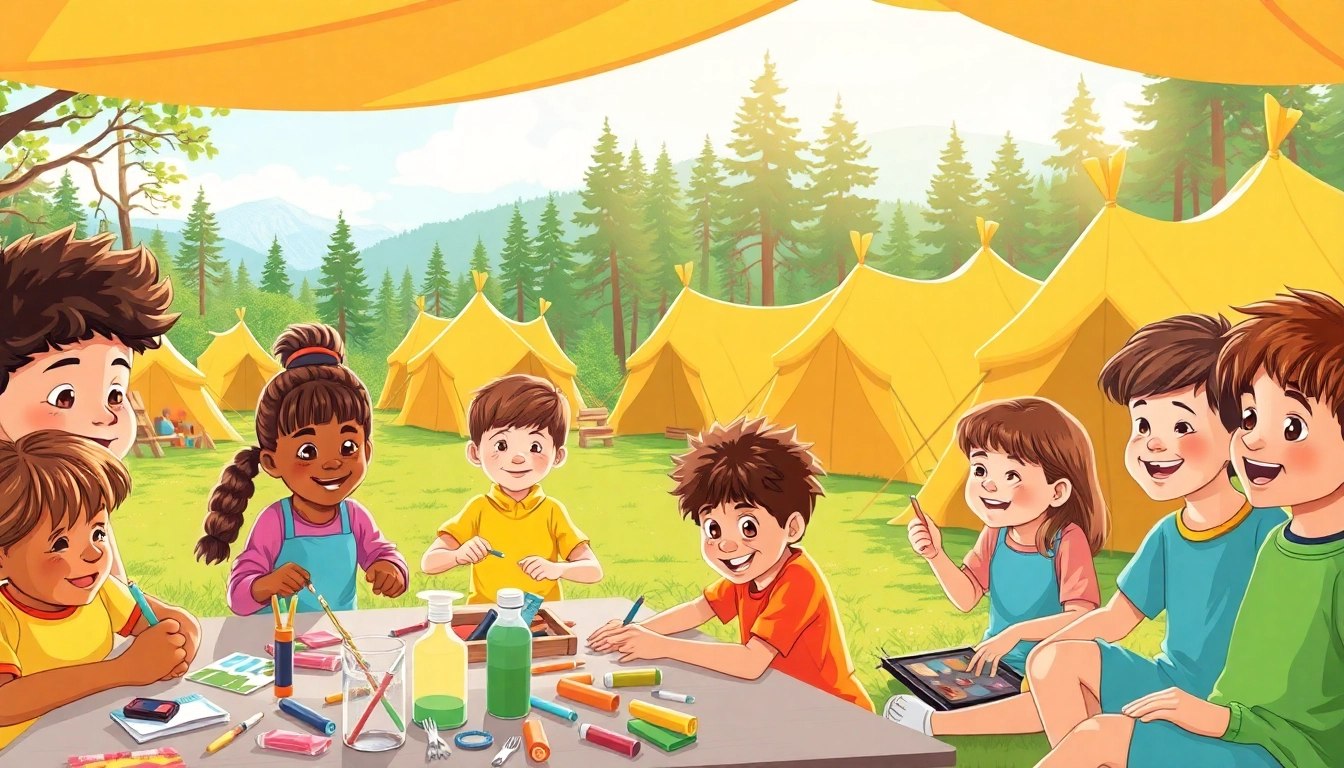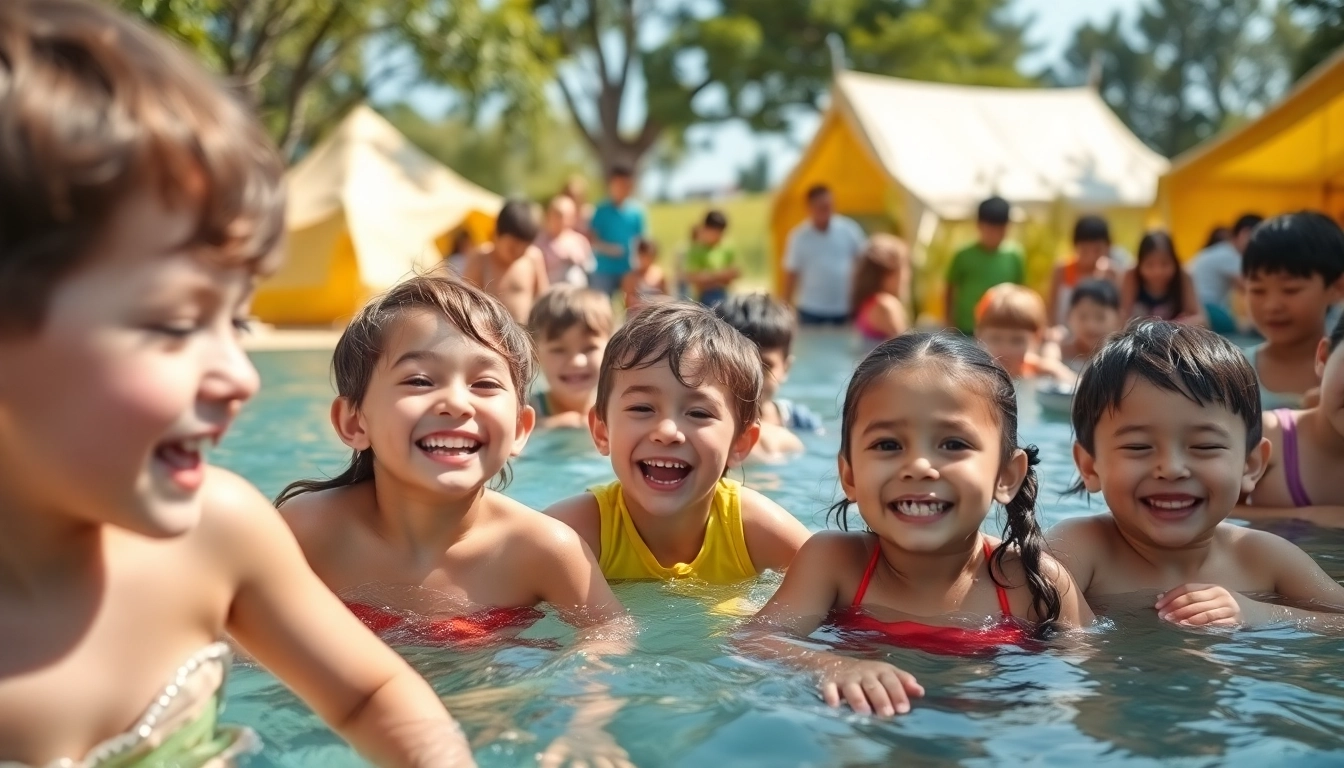Understanding Holiday Camps
Holiday camps provide a unique opportunity for families to create cherished memories while enjoying various recreational activities. They cater to children during school breaks, offering a structured environment filled with exciting experiences. Many parents are looking for holiday camps that can combine fun and learning, making it essential to understand what these camps entail and how to choose the right one.
What Are Holiday Camps?
At their core, holiday camps are organized programs designed for children and adolescents when school is not in session. They typically run during major school breaks such as summer, winter, and spring vacations. Unlike regular daycares, holiday camps focus on specific themes, often incorporating diverse activities that promote personal growth, social skills, and physical fitness.
Holiday camps can vary in terms of duration, structure, and activities offered. They may be day camps, which run during daylight hours, or residential camps, where participants stay overnight for an extended period. The fundamental goal of these camps is to provide a safe, fun, and enriching environment for children.
The History and Evolution of Holiday Camps
The concept of holiday camps has its roots in early 20th-century Europe, particularly in the United Kingdom. The first holiday camps were established to provide working-class families with affordable vacation options. These camps focused on community, socialization, and leisure, allowing children and their families a chance to escape the hustle and bustle of everyday life.
Over the years, holiday camps have evolved significantly. In the 1950s and 1960s, they became more commercialized, featuring a wide range of activities including sports, arts and crafts, and more structured educational initiatives. By the 1980s, major brands like Butlins and Haven introduced a more diverse range of offerings, transforming the holiday camp landscape into the multifaceted experience we see today.
Types of Holiday Camps Available
Holiday camps can be categorized based on various themes and focuses:
- Adventure Camps: These camps emphasize outdoor activities such as hiking, rock climbing, and camping skills.
- Educational Camps: Focused on skill-building, these camps might include STEM workshops, arts education, or language immersion.
- Sports Camps: Perfect for aspiring athletes, these camps offer focused training in specific sports, such as soccer, basketball, or swimming.
- Art and Music Camps: For creative children, these camps offer classes in painting, drama, or music, helping them develop their artistic talents.
- Themed Camps: These camps center around popular interests, such as science fiction, history, or cultural experiences, providing a unique twist to traditional camp activities.
Benefits of Attending Holiday Camps
Sending children to holiday camps can provide them with numerous advantages that extend beyond mere recreation:
Social and Emotional Development
Participation in holiday camps encourages social interaction with peers, an essential aspect of a child’s development. Kids learn to work together, communicate effectively, and build friendships outside of their regular social circles. Many camps incorporate team-building exercises that enhance cooperation and develop emotional intelligence.
Moreover, holiday camps often provide a safe space for children to manage separation from their parents for the first time, fostering independence and resilience.
Learning New Skills and Hobbies
Kids have the opportunity to explore various interests that they may not have encountered otherwise. Whether it’s learning new sports skills, mastering a musical instrument, or discovering talent in arts and crafts, holiday camps expose children to new experiences that can ignite lifelong passions. Moreover, the camp environment often encourages risk-taking in a supportive way, allowing kids to step out of their comfort zones.
Building Lifelong Memories
The experiences gained during holiday camps often turn into fond memories that children carry into adulthood. From campfires and talent shows to thrilling adventures and new friendships, these moments contribute significantly to a child’s sense of identity and belonging. Many adults fondly recall their camp experiences, often recounting stories to their families, continuing the legacy of enjoyment and growth.
Activities Offered at Holiday Camps
Every holiday camp is unique, but most share a common goal: to provide engaging activities that foster fun and learning. Below are some popular activities typically found at holiday camps:
Outdoor Adventures and Sports
Many holiday camps put a strong emphasis on outdoor activities. These can include hiking, canoeing, rock climbing, and obstacle courses—all designed to promote physical fitness and an appreciation for nature. Sports activities, from soccer and basketball to swimming and gymnastics, help children learn teamwork and sportsmanship while boosting their self-esteem through achievements.
Arts and Crafts Opportunities
Creative activities such as painting, sculpting, and crafting allow children to express their artistic talents and imagination. These sessions can range from guided projects led by experienced instructors to more freestyle activities where kids have the liberty to explore their creativity. Not only do arts and crafts activities build fine motor skills, but they also promote relaxation and self-expression.
Educational Workshops and Classes
Many camps offer specialized workshops that focus on subjects like coding, environmental studies, or even cooking. Such educational activities make learning fun and engaging, often introducing children to new skills that accompany academic curricula. Combining education with recreation helps children to develop a love for learning outside the traditional classroom setting.
Choosing the Right Holiday Camp
With many options available, selecting the right holiday camp for your child can feel overwhelming. Here are some key considerations to guide your decision:
Factors to Consider When Selecting a Camp
Before committing to a holiday camp, assess the following factors:
- Location: Proximity to home could be an important aspect, especially for day camps.
- Duration: Determine whether you want a day camp or an overnight experience. Additionally, assess how long the camp runs (i.e., weeks, sessions).
- Cost: Ensure you understand the pricing structure, including payment plans, discounts, and what activities are covered within fees.
- Staff Qualifications: Look for camps that prioritize safety and have trained staff, including specialized instructors for various activities.
Researching Camp Options
Once you’ve identified potential camps, conduct thorough research. Check their websites, social media pages, and available brochures to gather essential information on activities, testimonials, and camp philosophies. Participating in open house sessions or virtual tours can also provide a deeper insight into the camp environment and culture.
Reading Reviews and Testimonials
Feedback from previous campers and their parents is invaluable when deciding on a camp. Look for online reviews that highlight both positive and negative aspects. Online forums, community groups, and platforms like Google Reviews and Facebook can offer helpful insights into what each camp can offer.
Maximizing the Holiday Camp Experience
To ensure your child gets the most out of their holiday camp experience, proper preparation is key:
Preparing for Camp: A Parent’s Guide
As a parent, consider discussing the upcoming camp experience with your child. Explain the types of activities they might encounter and encourage them to keep an open mind. Having a positive conversation about the camp can help alleviate fears and excite your child about the adventure ahead.
What to Pack for Holiday Camps
Creating a packing list is an essential step in preparing for holiday camps. While individual camp requirements may vary, here are some common items to consider:
- Sunscreen and insect repellent
- Comfortable clothing and sturdy shoes
- Personal items (toiletries, medications, etc.)
- Reusable water bottle
- Any specific materials required for activities (art supplies, sports gear, etc.)
Encouraging Kids to Make the Most of Their Time
Encourage your child to embrace every aspect of their camp experience. Whether they are trying a new sport, making new friends, or learning a new skill, fostering a sense of adventure and curiosity can enhance their camp experience. Remind them to take opportunities to step out of their comfort zone and participate actively in all offered activities.
Conclusion
Holiday camps represent a fantastic opportunity for children to engage in meaningful activities and build essential life skills while having fun. With thoughtful planning—from understanding the different types of camps available, to preparing your child for the adventure ahead—parents can ensure that their kids have a positive and enriching camp experience. As holiday camps continue to evolve, they remain a cherished avenue through which children can enjoy growth, development, and lasting memories.



